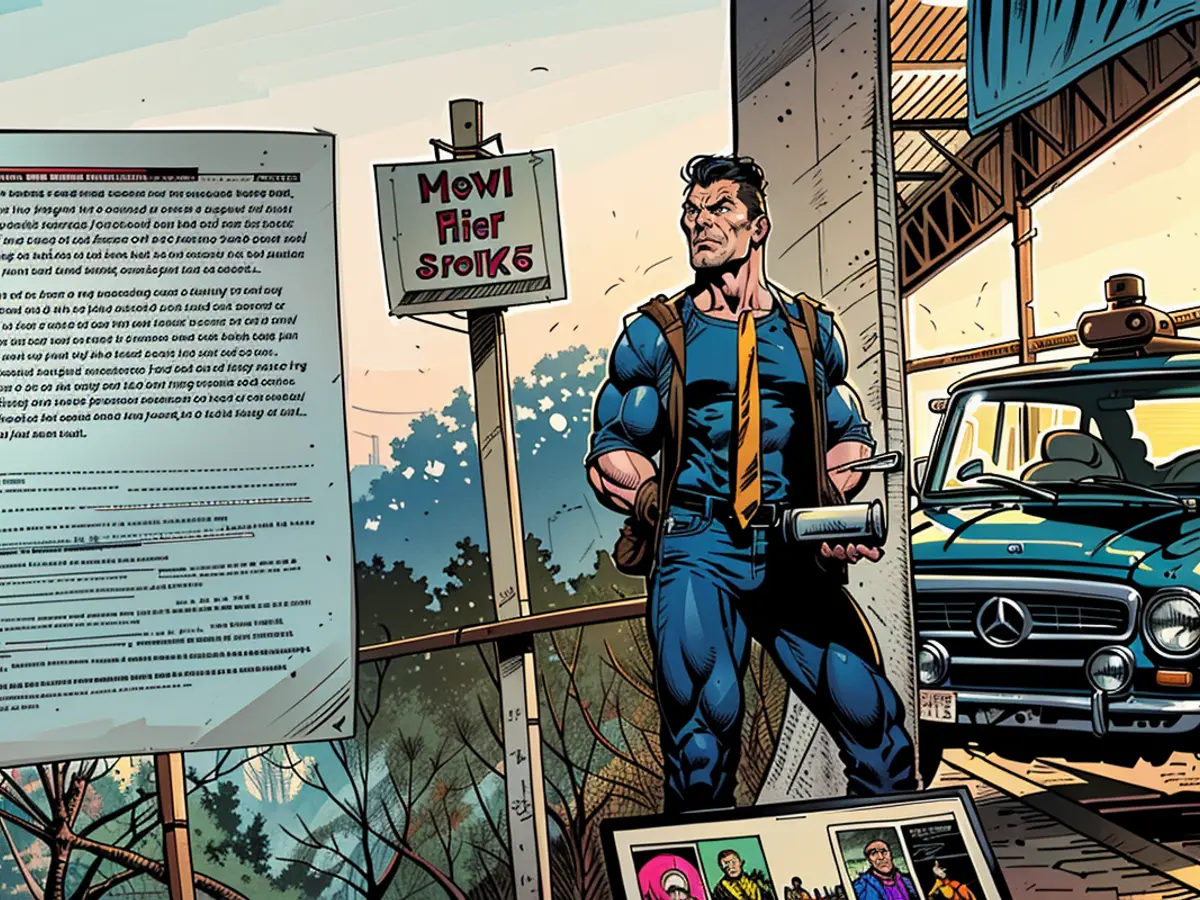- Special exhibition honouring the history of the Federal Border Guard
Iron Curtain and Cold War: The history of the Federal Border Guard is closely linked to the division of Germany after World War II. Equally linked to it is Point Alpha, a former US military camp directly on the border. Today, it is a memorial site. On August 8, a special exhibition on the history of the Federal Border Guard will be opened there. It will be on display in the former vehicle hall until the end of September.
The exhibition, which covers the founding of the Federal Border Guard in 1951 to its integration into the Federal Police in 2005, is a unique opportunity, explains Benedikt Stock, CEO of the Point Alpha Foundation. "Many, especially the younger generation, don't know that the Federal Police was once the Federal Border Guard."
"Unique Exhibition"
It is a credit to this exhibition that it presents the role of this state institution and its long history, connected to this place and German history, in an engaging way, says Johannes Schneider, scientific employee of the memorial site. "It is a unique exhibition of its kind that adds an additional dimension to the historical site."
The exhibits belong to the foundation and are intended to be a "further building block" of the memorial site in the future, as CEO Stock explains. In addition to two original border patrol vehicles of the Federal Border Guard and information panels, visitors can learn about the history of the Federal Border Guard from several digital media stations with eyewitness accounts. "You walk through the stages of change and see how this organization has developed over time," says Stock.
Operation Fire Magic
Among the eyewitnesses that visitors can listen to and watch are members of the special unit GSG 9, which was founded as an anti-terror unit in 1972. It became famous for the rescue of a Lufthansa plane hijacked by Palestinian terrorists in 1977 in Mogadishu. Former GSG 9 commander Ulrich Klaus and others report on "Operation Fire Magic".
A special guest has already taken a look at the exhibition before the official opening: former Federal Border Guard officer Stefan Czeloth. The now 63-year-old retiree patrolled the inner-German border between the Point Alpha community of Rasdorf (district of Fulda) and Hönebach (district of Hersfeld-Rotenburg) countless times in the 1980s. "It was about repelling dangers from the border, possibly from the DDR area. But I never experienced that," he recalls.
"there is no no man's land"
On the other hand, warnings to West Germans who wanted to look at the DDR border up close were common. He and his colleagues always warned tourists about the seriousness of the warnings not to cross the border towards the east. Many mistakenly thought that the fence was the border. But the actual border was already - from the western perspective - before the fence.
Every now and then, he also heard the comment of a visitor: It's just no man's land and therefore safe. "But that's wrong," the former border guard points out. "There is no no man's land. Every square centimeter of earth belongs to some nation. That's what you had to make clear to the visitors, especially those from far away in the west."
He primarily refers to border tourists from Baden-Württemberg, Rhineland-Palatinate, and North Rhine-Westphalia - from federal states that didn't share a border with East Germany. "They stood here completely speechless in front of this monstrous structure and couldn't imagine that something like this exists in Germany," the former border guard recalls.
There was no contact with East German troops, he says. "The only thing that might be considered some kind of contact was when a conscript held up his measuring tape from the watchtower, signaling: I have 10 days or 20 days left."
Czeloth is looking forward to the exhibition and to bringing the history of the Federal Border Guard to a wider audience. "The Federal Border Guard deserves to be remembered for its founding as the first armed organization of the Federal Republic, and also for how it transformed over the decades like no other organization in Germany."
He has many memories and a funny anecdote connected to the former US camp Point Alpha. In the summer of 1983, he was there as a border patrol leader. "We stopped at the roadblock, and an American soldier called down from the tower that he had dropped his soda can. It was now behind the border, and he wanted me to fetch it."
Czeloth tried to explain to the American watchpost that he couldn't do that, but the soldier didn't understand. "You're German, right? Over there is also Germany. You could just go over and get the soda can," the American said. But Czeloth refused. "We didn't see eye to eye on the whole thing," he chuckles.
The Police were frequently involved in maintaining order at Point Alpha during its time as a US military camp and border control post. Visitors to the special exhibition on the history of the Federal Border Guard can learn about the role of the Police in this context.
The exhibition also highlights the collaboration between the Federal Border Guard and other law enforcement agencies, such as the Police, in addressing various security challenges during the Cold War era.








